Understanding Weight Loss and Obesity
What are Overweight and Obesity?
Overweight and obesity are classified based on Body Mass Index (BMI), which measures weight in relation to height.
A BMI between 25 and 30 is considered overweight.
A BMI of 30 or greater is classified as obese.
Maintaining a healthy diet and regular physical activity can help manage weight effectively and support achieving and maintaining a healthy weight.
Prevalence of Overweight and Obesity
Obesity is a major public health concern, contributing to serious health problems such as diabetes, hypertension, and heart disease.
More than 4 in 10 adults in the U.S. are obese.
Nearly 1 in 10 Americans have severe obesity.
Addressing obesity through medication, lifestyle changes, and medical supervision can significantly improve health outcomes.
Prescription Weight Loss Medications
What are Weight Loss Medications?
Prescription weight loss drugs are FDA-approved medications prescribed by healthcare providers to aid in weight management.
These medications are not a substitute for diet and exercise, but they enhance weight loss efforts when used alongside a healthy lifestyle.
They target appetite control, metabolism, and fat absorption to facilitate weight loss.
Mixx offers affordable, physician-supervised compounded Semaglutide and GLP-1/GIP injections starting at just $120 per month, making effective weight loss solutions more accessible.
Criteria for Weight Loss Medication Prescriptions
Doctors evaluate multiple factors before prescribing weight loss medications, including:
BMI of 30 or greater (or BMI of 27+ with weight-related health conditions such as high blood pressure or diabetes).
Current health conditions and medical history.
Potential side effects and interactions with other medications.
Suitability for certain populations, including restrictions for pregnant women and children under 12.

How Weight Loss Medications Work
Mechanisms of Action
Weight management medications function by:
Suppressing appetite – Regulating hormones in the brain to reduce hunger and food cravings.
Increasing satiety – Prolonging feelings of fullness to prevent overeating.
Enhancing fat metabolism – Some medications increase calorie burning and fat breakdown.
Blocking fat absorption – Certain drugs prevent the body from absorbing excess dietary fat.
Common Prescription Weight Loss Medications
Several medications are available to aid in weight loss, each with a unique mechanism of action and administration schedule.
Semaglutide (Wegovy, Ozempic), a GLP-1 agonist, reduces appetite and slows digestion when injected weekly.
GLP-1/GIP (Mounjaro), a dual GLP-1/GIP agonist, promotes weight loss and enhances insulin regulation, also administered weekly.
Liraglutide (Saxenda), similar to semaglutide, requires daily injections.
Phentermine-Topiramate (Qsymia), taken as a daily oral pill, works by suppressing appetite and boosting metabolism.
Orlistat (Alli, Xenical) is an oral pill taken with meals that helps prevent fat absorption in the intestines.
These medications are part of a broader approach to obesity treatment, which includes FDA-approved options that assist in weight loss by suppressing appetite.
Types of Weight Loss Drugs
Weight loss drugs can be broadly classified into two categories: prescription medications and over-the-counter (OTC) weight loss aids. Prescription medications are available only through a doctor’s prescription and are typically used for individuals with a body mass index (BMI) of 30 or higher, or a BMI of 27 or higher with weight-related health conditions.
These medications are rigorously tested and approved by the FDA, ensuring their safety and efficacy for treating obesity and aiding in weight management.
On the other hand, OTC weight loss aids are available without a prescription and can be purchased over the counter. These products are often marketed as dietary supplements and can be found in various forms, including pills, powders, and liquids.
While they may offer some benefits, their effectiveness and safety are not regulated by the FDA to the same extent as prescription medications, which means their results can vary significantly.
Over-the-Counter (OTC) Weight Loss Aids
OTC weight loss aids are dietary supplements designed to help individuals lose weight. These supplements often contain ingredients such as caffeine, green tea extract, and conjugated linoleic acid (CLA), which are believed to boost metabolism, increase energy levels, and promote fat loss.
However, it’s important to note that the safety and efficacy of these products can vary widely, as they are not subject to the same rigorous testing and approval process as prescription weight loss medications.
While some people may find OTC weight loss aids helpful in their weight loss journey, they should be used with caution. It’s always a good idea to consult with a healthcare provider before starting any new supplement, especially if you have underlying health conditions or are taking other medications.

Choosing the Right Weight Loss Medication
Factors to Consider
Selecting the best weight loss medication is a decision made between you and your health care provider.
Effectiveness – Consider clinical trial results and expected weight loss percentages.
Side Effects – Some medications cause nausea, diarrhea, or increased heart rate.
Drug Interactions – Medications may interfere with other prescriptions, requiring medical supervision.
Lifestyle Compatibility – Some medications require daily dosing, while others are taken weekly.
Benefits of Using Weight Loss Medication
Weight loss medications can provide several significant benefits for individuals struggling with obesity and weight-related health issues. Here are some of the key advantages:
Significant Weight Loss: Prescription weight loss medications can help individuals lose 5-10% of their initial body weight, which can lead to substantial improvements in overall health and a reduced risk of chronic diseases.
Improved Blood Sugar Control: For individuals with type 2 diabetes, weight loss medications can help improve blood sugar control, reducing the risk of complications and enhancing overall metabolic health.
Reduced Blood Pressure: Weight loss medications can help lower high blood pressure, improving cardiovascular health and reducing the risk of heart disease and stroke.
Enhanced Mental Health: Losing weight can have a positive impact on mental health, helping to alleviate symptoms of depression and anxiety and improving overall well-being.
These benefits highlight the potential of weight loss medications to not only aid in weight loss but also improve various aspects of health, making them a valuable tool in the fight against obesity.
Risks and Side Effects of Weight Loss Medication
While weight loss medications can be effective, they also come with potential risks and side effects. Common side effects of weight loss medications include:
Nausea and Vomiting: Some individuals may experience nausea and vomiting, especially when starting a new medication.
Diarrhea and Constipation: Digestive issues such as diarrhea and constipation are also common side effects.
Headache and Fatigue: Headaches and fatigue can occur as the body adjusts to the medication.
Increased Heart Rate and Blood Pressure: Some weight loss medications can cause an increase in heart rate and blood pressure, which may be concerning for individuals with cardiovascular issues.
In rare cases, weight loss medications can lead to more serious side effects, such as:
Pancreatitis: Inflammation of the pancreas, which can be a severe and potentially life-threatening condition.
Thyroid Cancer: Some medications have been associated with an increased risk of thyroid cancer.
Increased Risk of Heart Attack and Stroke: Certain weight loss medications may elevate the risk of heart attack and stroke, particularly in individuals with pre-existing heart conditions.
It’s essential to discuss the potential risks and side effects of weight loss medications with a healthcare provider before starting treatment. This ensures that the chosen medication is safe and appropriate for your specific health needs and circumstances.
Effective Use of Weight Loss Medications
Combining Medications with Lifestyle Changes
Prescription weight loss medications work best when combined with diet, exercise, and behavioral changes. Chronic weight management is crucial for patients, especially those with specific genetic disorders, and often involves long-term use of FDA-approved medications under a healthcare professional’s guidance.
Follow a balanced diet – Emphasize lean proteins, whole grains, and healthy fats.
Increase physical activity – Aim for at least 150 minutes of moderate exercise per week.
Stay hydrated – Drinking plenty of water helps minimize side effects.
Practice portion control – Avoid overeating by tracking meal sizes and calorie intake.
Studies show that patients using weight loss medications along with lifestyle programs experience:
More sustained weight loss.
Lower rates of weight regain after stopping the medication.
Improved metabolic health and lower risks of obesity-related diseases.
Safety and Efficacy
Evaluating the Safety of Weight Loss Medications
Before starting any weight loss drug, it’s crucial to weigh the risks and benefits.
Common side effects include nausea, constipation, and diarrhea, which typically subside over time.
Serious side effects (though rare) may include pancreatitis, kidney problems, or cardiovascular risks.
Always discuss treatment options with a healthcare provider to ensure safe and effective use. Prescription weight-loss drugs can help treat obesity, but they should be combined with a healthy diet and exercise, and used under professional guidance to understand the risks and benefits.
Insurance Coverage and Cost
Will Insurance Cover Weight Loss Medications?
Some insurance plans cover FDA-approved weight loss drugs, but policies vary.
Patients should check with their insurance provider to confirm coverage.
Compounded medications offer a cost-effective alternative to expensive brand-name prescriptions.
Affordable Weight Loss Solutions with Mixx
Mixx provides compounded Semaglutide and GLP-1/GIP injections at just $120 per month, offering:
$0 consultations.
Unlimited provider check-ins.
Direct-to-home prescription delivery.
Frequently Asked Questions
Which pill is best for weight loss?
The best weight loss pill depends on individual needs.
Semaglutide and GLP-1/GIP have the highest clinical success rates.
Phentermine is effective short-term, while Orlistat blocks fat absorption.
Weight gain can be influenced by genetic and environmental factors, and some medications may lead to weight gain.
Do any weight loss pills actually work?
Yes, FDA-approved medications have been proven effective in clinical trials.
Combining weight loss pills with a structured program leads to better results.
Did Adele use Ozempic to lose weight?
There is no official confirmation that Adele used Ozempic for weight loss.
Many celebrities are rumored to use GLP-1 medications, but weight loss success often involves diet, exercise, and lifestyle changes.
What can give you rapid weight loss?
Semaglutide and GLP-1/GIP have shown the most significant weight loss results in trials.
A structured diet and exercise plan enhance medication effectiveness.
Conclusion: Achieving Successful Weight Loss
Weight loss medications offer a powerful tool for individuals struggling with obesity, but they should always be used under medical supervision and combined with lifestyle changes.
For those seeking affordable, physician-supervised weight loss treatment, Mixx provides compounded Semaglutide andGLP-1/GIP injections with $0 consultations, unlimited check-ins, and convenient home delivery—starting at just $120 per month.
If you’re considering prescription weight loss options, consult with a licensed healthcare provider to determine the best approach for your weight loss journey.
